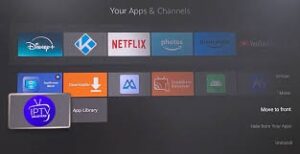Introduction
In the modern digital age, the internet offers endless opportunities for learning, entertainment, and connection. However, it also contains risks, including websites that share content without consent. Sites like Thothub, though now offline, serve as examples of platforms that can harm creators, users, and even minors who stumble upon them.
Parents need to understand these risks to protect their children, guide them toward safe online behavior, and foster discussions about ethics and responsibility on the internet. This article outlines what parents should know about sites like Thothub and practical steps for safeguarding children online.
Understanding the Nature of Such Sites
Websites like Thothub often host unauthorized content, including private or subscription-based material. They operate by distributing content without the consent of the creator, sometimes using ads to generate revenue. While the content may appear free to users, accessing it supports exploitation and breaches ethical and legal boundaries.
For parents, understanding the nature of these sites is the first step. Awareness helps in recognizing potential risks and teaching children about the consequences of using such platforms.
Why These Sites Are Dangerous
There are several reasons why sites like Thothub can be harmful:
-
Exposure to Inappropriate Content: Children or teens may inadvertently access adult or sensitive material.
-
Violation of Privacy and Consent: Users become part of a cycle where creators’ rights are ignored.
-
Security Risks: Unregulated sites may contain malware, phishing links, or harmful ads.
-
Legal and Ethical Risks: Viewing or sharing unauthorized content can have legal consequences and promotes unethical behavior.
Parents should be aware that even if children are not intentionally visiting these sites, they may come across them through online searches or peer sharing.
Impact on Young Minds
The internet plays a major role in shaping values, beliefs, and understanding of social norms. Exposure to sites like Thothub can impact children in several ways:
-
Normalization of Exploitation: Viewing content taken without consent can desensitize children to ethical issues.
-
Distorted Understanding of Privacy: Children may not grasp the importance of respecting others’ personal material.
-
Emotional Confusion: Encountering adult or sensitive content prematurely can cause stress or anxiety.
It is important for parents to actively engage with children about what they encounter online and explain why certain sites are harmful.
Guiding Conversations About Consent
Sites like Thothub emphasize the importance of teaching children about consent, both online and offline. Parents should explain that just because content is accessible does not mean it is okay to view, share, or download it.
Discussions can focus on:
-
Respecting others’ work and privacy.
-
Understanding copyright and the value of creators’ efforts.
-
Recognizing the difference between ethical platforms and harmful sites.
By normalizing these conversations, parents can help children develop a sense of responsibility and digital ethics.
Monitoring and Protecting Online Activity
Practical steps can help parents monitor and protect children from potentially harmful websites:
-
Parental Controls: Many devices and platforms offer parental control settings that restrict access to inappropriate sites.
-
Safe Browsing Tools: Encourage children to use search engines and platforms with content filters.
-
Communication: Maintain open conversations about online activity, encouraging children to ask questions if they encounter confusing or harmful content.
-
Education: Teach children how to identify suspicious sites and avoid clicking on unverified links.
These measures do not eliminate all risk but create a safer online environment and foster responsible behavior.
Encouraging Safe Alternatives
Instead of focusing solely on restricting access, parents can guide children toward safe and ethical platforms for content consumption. For example:
-
Educational platforms for videos and tutorials.
-
Age-appropriate entertainment websites.
-
Creative platforms that respect copyright and privacy.
By highlighting positive alternatives, parents empower children to make good choices and understand the value of supporting creators and ethical platforms.
The Role of Digital Literacy
Digital literacy is key in protecting children from sites like Thothub. Children should learn to:
-
Question the source of content.
-
Understand what “consent” means online.
-
Recognize the difference between legal and illegal content.
-
Identify potential security risks.
Equipping children with these skills helps them navigate the internet safely, avoid harmful sites, and act responsibly online.
The Importance of Setting Examples
Parents also set examples through their own online behavior. Modeling responsible content sharing, respecting privacy, and discussing digital ethics can reinforce the lessons children learn. Children are more likely to adopt ethical online habits when they see adults practicing them consistently.
Addressing Peer Influence
Peer influence plays a significant role in online behavior. Children may feel pressure to explore certain sites or share content. Parents should help children understand that curiosity or peer pressure does not justify unethical actions.
Discussing scenarios, consequences, and appropriate responses helps children build confidence in making safe and responsible choices, even when peers are acting differently.
Conclusion
Sites like Thothub highlight the dangers of digital exploitation, unauthorized content, and unsafe online behavior. For parents, understanding these risks is essential for guiding children toward safe, ethical, and responsible internet use.
By fostering conversations about consent, privacy, and digital ethics, monitoring online activity, and encouraging safe alternatives, parents can protect their children from harm. Thothub may be gone, but the lessons it offers about online responsibility, ethics, and vigilance remain critical in today’s digital world.




